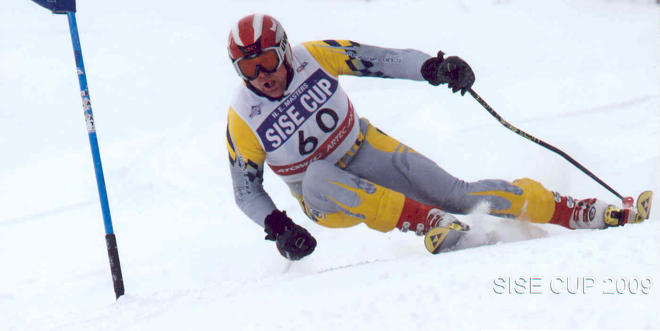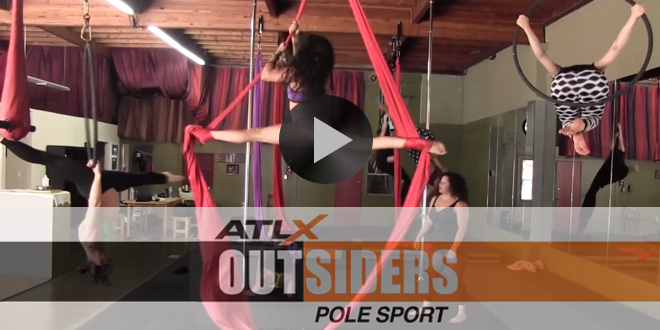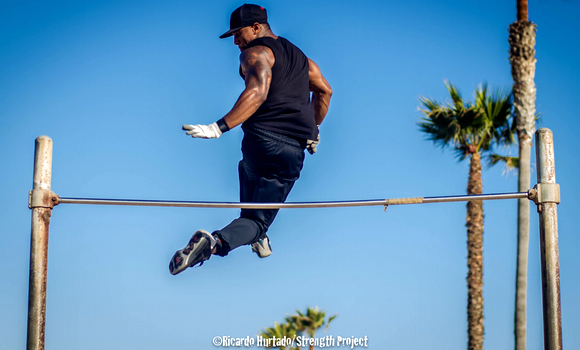By: Aaron Fischman
Wes Worley, Judy Barton and Fred Dieffenbach absolutely adore their respective sports.
For Worley, a shortstop and left fielder for a high school baseball team in the late 1950s, Senior Softball keeps him active and highly engaged in his later years. After more than four decades of barely picking up a bat or ball, the then-64-year-old architect decided to start playing, because when he routinely traveled for work, he had little else to do during workweeks.
For Barton, whose story along with her teammates’ was featured in the thrilling documentary Granny’s Got Game, her basketball hiatus was a long 38 years, halted simply by an advertisement in the local Raleigh (N.C.) newspaper. Beginning organized basketball in 1949, Barton’s fiercest level of competition back then came through her church league, the Catholic Youth Organization, in Northern New Jersey.
Fred Dieffenbach’s story is a little different. Now 56, the current New England Masters Vice President didn’t start skiing competitively until he was 32 years old.
 Worley, now 73, began playing in local senior leagues in Columbus, Ohio, where he spent a lot of time for work, before eventually transitioning to traveling tournaments all around the country. Now retired, in 2014, for example, he’s tentatively scheduled to appear in 13 tournaments in locations such as Myrtle Beach, S.C., Indianapolis, Ind., and Richmond, Va.
Worley, now 73, began playing in local senior leagues in Columbus, Ohio, where he spent a lot of time for work, before eventually transitioning to traveling tournaments all around the country. Now retired, in 2014, for example, he’s tentatively scheduled to appear in 13 tournaments in locations such as Myrtle Beach, S.C., Indianapolis, Ind., and Richmond, Va.
Granted, the related exercise is great for men in their 70s, but don’t for a second assume that they’re not in it to win.
“It is highly competitive to the point that unfortunately we’re still kids I guess,” says Worley. “We’ll get into at least a hot discussion (every once in a while). We don’t like to lose just like we didn’t like to lose 40 years ago.”
That’s why after decades away from competition, Worley bought two machines with which he could practice by myself – a pitching and fly ball machine. For two to three days each week, he would field 100 balls and take a rip at 150 pitches until he grew comfortable enough on the field.
“I just wanted to get back active,” says Worley, “and once I did, I’m sort of like, ‘If I’m going to do something, I want to do it as best I can.’”
 Barton and her Fabulous 70s team were the same way, eventually enlisting former UNC Asheville player Dawn Funderburk to serve as their coach. As shown extensively in Granny’s Got Game, Barton and her teammates play to win, and they have a slew of medals to prove it.
Barton and her Fabulous 70s team were the same way, eventually enlisting former UNC Asheville player Dawn Funderburk to serve as their coach. As shown extensively in Granny’s Got Game, Barton and her teammates play to win, and they have a slew of medals to prove it.
Despite the tenacious competition, allowances have been made by the various organizations. In Masters skiing, the oldest competitors get to race first, while the course is the cleanest. Doing so is aimed at preventing unnecessary injury. The Fabulous 70s’ games are half-court affairs much shorter than a regulation basketball game. For its part, Senior Softball allows its 70+ participants to use aluminum bats with more pop than the younger players are permitted to swing.
At times, play gets extremely physical – in the film, Barton’s teammate, Mary Turner, plays through a severely sprained ankle – but injuries and even more serious ailments are merely par for the course. When Barton was battling breast cancer, she scheduled her chemotherapy treatments in such a way so that she could compete in state tournament games.
The aforementioned newspaper ad that implored Barton to lace up her shoes and reignite her long-lost basketball career simply said the Raleigh-Wake Senior Games were going to start basketball for men and women in the area. She went to the meeting. There, she met Twig Wiggins, who also happens to be the husband of Barton’s teammate, Sarah Wiggins, and the rest is history. Twig would go on to coach Barton’s team off and on for the next 14 years.
Meanwhile, 78-year-old Barton has served as team captain for somewhere between five and 10 years. She’s always been a confident and comfortable leader, she says. “I was in management in an engineering department of a very large company,” Barton says, “back when there weren’t many women, so that’s just my pattern.” She was also president of her high school class.
 Worley, the former architect, had been meaning to get a trainer as soon as he started playing Senior Softball, but his traveling work schedule made working with a single trainer exceedingly difficult. However, when Worley retired last year, he found a trainer whom he trained with regularly for five months and ultimately lost 25 pounds.
Worley, the former architect, had been meaning to get a trainer as soon as he started playing Senior Softball, but his traveling work schedule made working with a single trainer exceedingly difficult. However, when Worley retired last year, he found a trainer whom he trained with regularly for five months and ultimately lost 25 pounds.
“I wanted to be as best as Wes could be,” says Worley, “and that’s what I needed to do if I was going to keep playing.”
Wes says that he used a trainer primarily to hold himself accountable. These days, still going strong, Wes tries to get to the gym three times each week, spending about an hour on various weight training exercises and the elliptical machine.
For Dieffenbach, the answer to “Why does he keep skiing?” is fairly simple: he still has much to learn, and it is that very challenge that keeps him going.
In his words, “There are a lot of other activities in the winter that I could try – snowboarding, for example; a lot of people tele-ski. I continue to alpine ski, because I think that I can still improve. I don’t go out and just ski leisurely. When there’s advances in technique, I like to go out and see if I can learn it. There’s still challenges in alpine skiing to the point that I’m really not interested in trying anything else because I haven’t perfected this yet.”
New England Masters, a USSA-affiliated organization that hosts sanctioned races for competitors ranging in age from 18 all the way over 90, generally attracts more competitive racers. That said, Dieffenbach sees participants on all parts of the spectrum: “You may have someone who just really enjoys the opportunity to go out and ski race and they don’t have any expectation of winning their class, or for that matter even the entire race. In contrast, we do have people that view it the other way around, that are very, very competitive.”
Dieffenbach, himself, belongs somewhere in the middle, appreciating the camaraderie with people he’s been racing against for decades, while at the same time going out each time and striving to beat his opponents regardless of how long he’s known them.
Similarly, Worley enjoys telling “war stories and all that kind of silly nonsense” with some of the fellow retired servicemen whom he plays with and against.
 The core of the Fabulous 70s has been together for 20 years and four of the original five remain active with the team. Although most of them wouldn’t consider one another friends in the traditional sense, they’ve leaned on each other in difficult times.
The core of the Fabulous 70s has been together for 20 years and four of the original five remain active with the team. Although most of them wouldn’t consider one another friends in the traditional sense, they’ve leaned on each other in difficult times.
“We are very comfortable with each other and know each other real well, but we’re not real buddy-buddy pals all the time, like going out to lunch and stuff like this and other things that I have with some of my other friends,” says Barton. “But we do a lot of things together socially related to the basketball and the basketball is always the focus of our friendship.”
No matter what, through thick and thin including injury, illness and even the death of one of their husbands, the women have continued to practice and compete in tournaments every year.
“What’s worked for all of us is to get involved with a group that does some activity and for us it’s basketball,” says Barton. “I know many people that play tennis that are my age, even older, and it helps to do it with other people like a team so that you make sure you show up because the team expects you to come.”
“This way, you keep yourself involved with a team or with another group of people and then you feel obliged to show up, and then when you show up you do exercise and that’s good for you.”
Other parts of life may get in the way of remaining active later in life and excuses are never in short supply – we’re human after all – but Barton’s logic appears incredibly sound. The method has worked for her, as well as Worley and Dieffenbach.
If you’ve been out of the game for some time and want to get back into the swing of things, start gradually, join an organization or team, and support your teammates as they support you. Staying active can prolong and enrich your life.
 ATLX The only sports entertainment television and digital media network fully devoted to everyday athletes, athletic lifestyle and athletic culture.
ATLX The only sports entertainment television and digital media network fully devoted to everyday athletes, athletic lifestyle and athletic culture.





